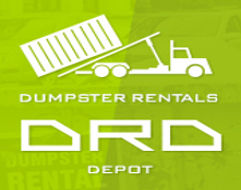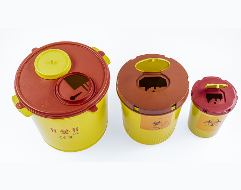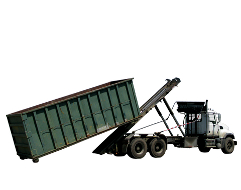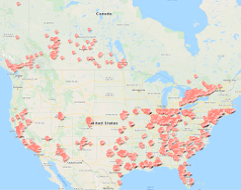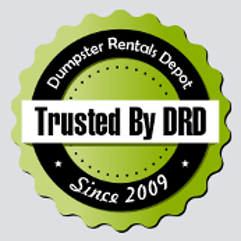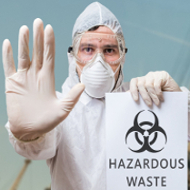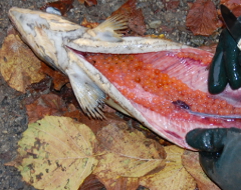Dealing With Household Junk
Every day we throwaway mountains and tons of waste. This includes packaging from food and goods, paper and envelopes, cans and bottles, plastic bags, kitchen waste, junk furniture, and much more. More people, more waste.
As the number of people in the world increases, so does the amount of waste. However, not all parts of the world produce the same amount of waste. A typical home in a developed country such as the United States, United Kingdom (UK), France or Germany produces many times more waste than a home in a developing country such as Kenya, Ghana, or India. For example, on average, a person in the U.S. produces about 5.5 Ibs (2 kg) of waste per day, a person in Europe produces about 2.4 Ibs (1.1 kg) per day, while a person living in India produces just over 1.1 Ib (0.5 kg) of waste per day.
Thrown away
As people earn more money, they
buy more goods, especially electrical
goods and luxury items. They throw
away more, too. The world is changing
from one where people repaired
broken goods or reused them to one
in which broken objects are tossed
away and replaced by new ones. The manufacturing of all of these goods is
using up the world's resources.
Harming the environment
Waste can be very harmful to the environment if it is not disposed of carefully. Also, the increasing volumes of waste create problems for the people who have to dispose of it. The world cannot continue to create so much waste-everybody will have to find ways of reducing it.
People throwaway many kinds of things. Much of the waste comes from the kitchen or garden. There are food scraps, lawn clippings, and weeds as well as paper, plastic, wood and metals.
Biodegradable waste
Food and garden waste is described as being biodegradable. This means that it will rot or break down naturally. The first stages of this rotting process often take place in the garbage can when food goes moldy and becomes smelly!
Some people put a lot of garden waste in their garbage can. This type of waste should be put on a compost heap where microorganisms such as bacteria and fungi break it down.
Other waste
A lot of paper is thrown away, too. This includes newspapers, magazines. old envelopes, junk mail, paper, and cardboard boxes. There is also paper packaging from food and household goods. The rest of the waste is made of plastic, metals, and glass, together with old clothes, unwanted toys, other household items, and things that have been broken beyond repair.
Dangerous waste
Some of the things that we throwaway can harm the environment. For example, old batteries contain metals that are poisonous to wildlife. Sometimes people throwaway unused medicines, which should be returned to the pharmacy to be disposed of properly. Many chemicals are used in the garden, which should not be put in the garbage but disposed of carefully.
What happens to the waste you throw out? In most developed countries, the waste is collected and taken to either landfill sites or incinerators. However, in much of the developing world, garbage is just dumped in the countryside.
Landfills
Landfills are huge holes in the ground, often left by gravel pits and quarries. The hole is gradually filled with waste from homes and industry. Each day, tractors squash the waste down so that it is all compacted together with no holes. Once the hole is full, the top is covered with a layer of soil. After about 10 years, the land can be used for farming or as a park.
Dumping waste in a hole is easy, but landfills cause problems. People do not like living near them because the waste attracts pests such as rats and seagulls. Landfills can be smelly places. As all the food and garden waste rots down, it releases a gas called methane. This gas has to be piped away-otherwise it could cause an explosion. Also, there are only a limited number of landfills and they are rapidly filling up.
Incinerators
Incinerators are places where waste is burned. Some modern incinerators use the heat produced by the burning waste to generate electricity. These incinerators are called Waste-to-energy plants. There are problems with incinerators, though. The smoke from incinerators may contain dangerous chemicals such as dioxin. Tiny quantities of this chemical can cause ill health or even kill people.
Better to recycle
Much of the waste that ends up in landfills and incinerators could be recycled. If it is recycled, it can be used to make something else. This is much better for the environment.
The three "R's" of managing waste are "reduce," "reuse," and "recycle:' Reduce means to cut down on the amount of waste, reuse means to put something to a new use or to fix it rather than throw it away, and recycle means to make a material into a new product.
Reduce and reuse
It is much better to not produce any waste in the first place. If less waste is thrown away, there is less waste to bury in landfills or burn in incinerators. For example, disposable diapers are a substantial part of household waste in houses where there is a baby. This could be avoided by using washable diapers. The next best way to deal with waste is to reuse it. For example, old plastic pots can be used as plant pots. Another way of reusing something is to sell it or give it to a charity shop or yard sale. If something cannot be reused, then the next best thing is to recycle it.
Recycle
Recycling means to make something into a new item-for example, a glass bottle can be melted made into a new bottle, while old cardboard can be shredded and made into new cardboard. Virtually all of the world's countries have recycling programs. A wide range of items can be recycled, but the most common are glass, paper, metal, plastic, old clothes, oil, and batteries.
There are recycling facilities such as aluminium and plastic recycling bins near stores and parking lots, and items for recycling are often collected from the home. So remember the three UR's" -reduce, reuse, and recycle. It is always better to reduce first, then to reuse, and finally to recycle something.
Very often local waste haulers offer waste recycling as a part of the waste removal service. Contact your local dumpster rentals and junk removal companies for more information:
Niagara Falls
Roll Off Bin Rental
is a local Niagara Falls, ON dumpster rentals & junk removalcompany
Calgary Dumpster Bin Rentals
- privately owned and operated dumpster rentals & roll off container rentals business in Calgary, AB.
Lambton Shores Dumpster Rentals
- Roll Off Dumpsters and front load dumpster rentals serving Sarnia, ON, Lambton Shores, ON and surrounding areas.
- Published: 2012-10-29T13:08:50-07:00
- Author: ROB THIBAULT
